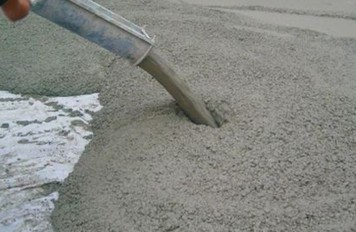Bayer’s CO pipeline remains unused due to public safety concerns

In 2011, Covestro, a subsidiary of the German chemical giant Bayer built a pipeline to transport carbon monoxide from one plant to another. It is still not in operation though as the project remains highly controversial, with the company pointing out its ‘economic meaningfulness necessity’ and locals and environmentalists expressing fears concerning public safety.
In the western German state of North Rhine Westphalia (NRW), a 67 km-long carbon monoxide (CO) pipeline connecting plants in Dormagen and Krefeld was constructed in 2011, in order for the chemical company Covestro to transport excess CO produced in one plant to the other to be used in the production of hard plastics. The pipeline runs below ground through populated areas on one side of the River Rhine, and twice crosses under the river to reach the factories which are situated to the other side of the river.
Based on a 2006 law, the state of North Rhine Westphalia had given the green light for the construction of the pipeline, however an operating permit was never issued, due to various lawsuits and disputes regarding CO and whether it should be transported in the first place, or if legislation allowing construction of the pipeline is even constitutional. Even the fear of terror attacks has been expressed: ‘Terror attacks on a CO pipeline are certainly a concern nowadays, says Dieter Donner, press coordinator for the "Stop the Bayer CO pipeline" network.
But the biggest risk seems to be the pipeline’s location, as it runs underneath densely populated areas and residents fear the damage that could be done when there is construction work nearby, resulting in leaks and fissures. The odorless, colorless, tasteless gas is "highly dangerous, even a small amount is lethal." Such hazardous products should only ever be "used in the plant where they are produced, and not transported," says Donner. Over the years, there have been numerous protests and petitions signed by thousands of concerned citizens to stop the pipeline, as well as the process of expropriations made necessary by its construction.
Johannes Remmel, NRW Environment Minister and member of the Green Party, opposed the operation of the pipeline for security reasons and would like to see the 2006 law revised and ultimately abolished. But on the other hand, "If the state government abolishes the pipeline law, the chemical firm might actually benefit - and try to get the state to pay compensation", Donner explains. "It's not clear how this will or can be resolved, the problems are huge and the court case is hopeless," he continues.
The company’s position
Covestro unfailingly holds on to the plan of starting up use of the pipeline between Dormagen and Krefeld. The company remains convinced of the "project's economic meaningfulness and necessity", says its spokesman Stefan Paul. However, an expertise ordered by the state government in 2014 concluded that there are alternatives to the pipeline, and that the Krefeld plant is sufficiently able to supply itself with the CO needed to manufacture hard plastics, according to Donner.
Source: Deutsche Welle
Want to read more like this story?

Meet Pipeline Screw Anchors for stabilization of oil, gas, and other pipelines
Jul, 05, 2017 | NewsPipeline Screw Anchors provide an excellent answer for stabilization of oil, gas, and other pipeline...

New open source tool to evaluate buildings’ environmental impact
Aug, 15, 2018 | NewsAn open source computing tool that is capable of calculating CO2 emissions in every phase of a build...

Cement's production high environmental footprint
Jul, 24, 2019 | NewsThe production of cement results in more pollution in the environment than all the trucks and just 1...

Concrete that traps CO2 emissions for good
Jul, 16, 2018 | NewsA new method to produce concrete that traps harmful CO2 emissions and increases the compression stre...

Hydrogen Projects: How to design safer pipe stress models and support systems
Jul, 20, 2022 | NewsIn order the hydrogen to be distributed, appropriate systems are used. These systems usually compri...

Bomb Discovered in Cologne During Pipeline Construction
Jun, 02, 2015 | NewsA WWII era, one-ton bomb was unearthed in the German city of Cologne during preparations for the con...

Steel or Timber? Carbon footprint of truss structures can be reduced with the aid of new studies
Nov, 29, 2021 | NewsBuildings contribute significantly to global warming, not just in their ongoing operations but in t...

Bristol: Two new buildings to be constructed after the approval by the Bristol City Council's
Mar, 14, 2024 | NewsPlans have been approved for the construction of two large buildings for student accommodation and...

The surge in infrastructure projects causes a 50% increase in concrete costs
Nov, 12, 2023 | NewsVictoria's infrastructure pipeline, valued at $78.5 billion, has led to a significant increase in d...
Trending

Spectacular interchanges around the world

New Release - STAAD.Pro 2024 - 2

ADINA 2025 for Structural WorkSuite

ADINA 2025 New Release!

Concrete Buildings as Rechargeable Batteries

Powerful earthquake shakes central Philippines, dozens killed


